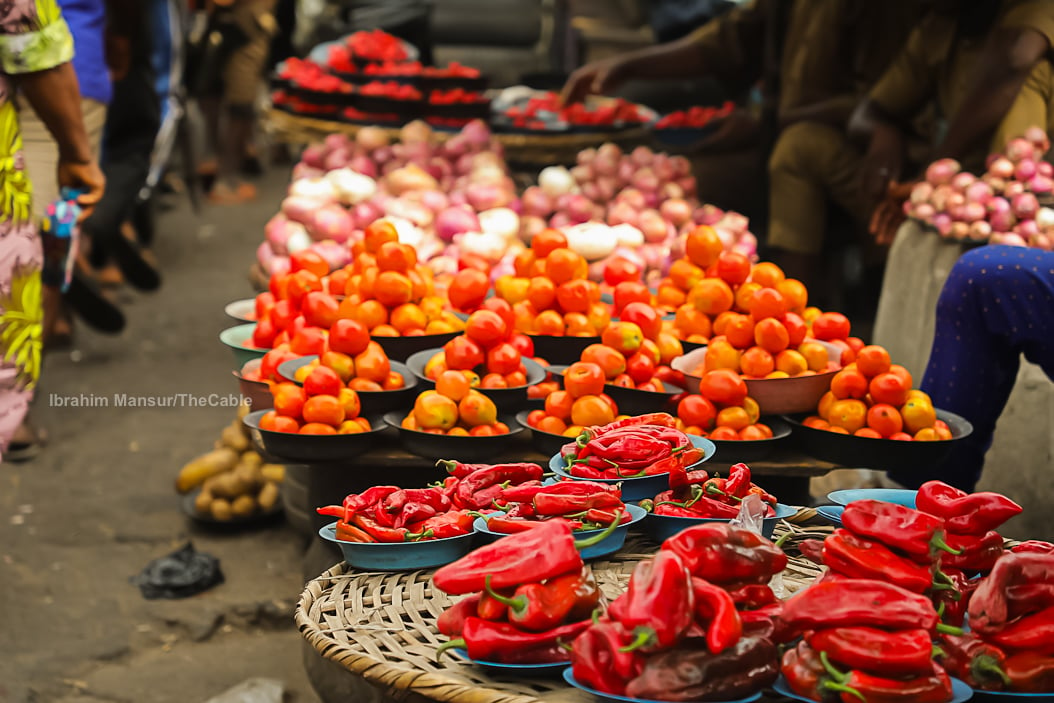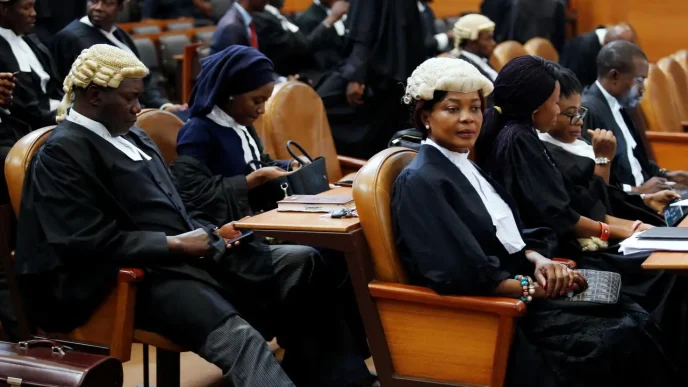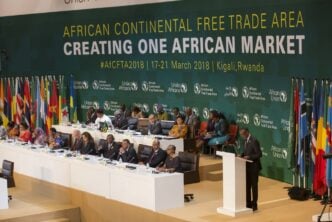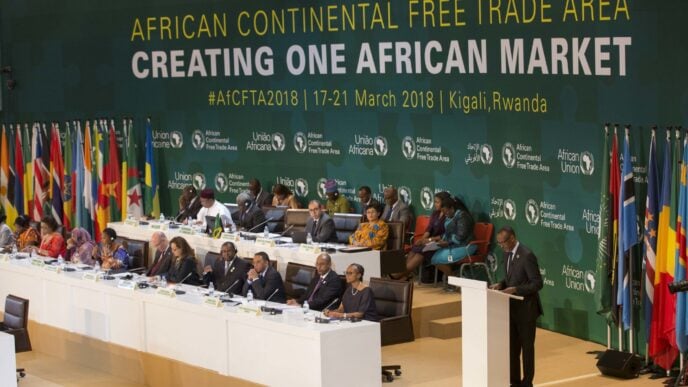BY JOE MUTAH
When President Bola Ahmed Tinubu assumed office in May 2023, he met a nation grappling with inflation, food insecurity, and climate-related disruptions to agriculture. The urgency to act was clear—and the President responded by prioritising agriculture and food security as a cornerstone of his Renewed Hope Agenda. A key early move was renaming the Federal Ministry of Agriculture and Rural Development to the Ministry of Agriculture and Food Security, signalling a decisive shift in policy emphasis: from bureaucratic routine to national food sufficiency and resilience.
But institutional change alone was not enough. The Tinubu administration needed capable leadership to translate vision into results. That responsibility fell on Senator Abubakar Kyari, a seasoned lawmaker, administrator, and grassroots mobiliser. Supported by Minister of State Senator Sabi Abdullahi, Senator Kyari assumed leadership of the Ministry in 2023, at a time when food inflation was surging, insecurity threatened farming communities, and millions of Nigerians were struggling with the cost of essential staples.
Senator Kyari quickly emerged as a steady, data-driven, and reform-oriented Minister. His leadership has been instrumental in aligning national agricultural policy with President Tinubu’s broader economic goals. A pivotal move was the President’s declaration of a State of Emergency on Food Security, which elevated agriculture to the level of national security. This opened the door for inter-ministerial collaboration, faster funding approvals, and urgent interventions across the entire food value chain.
Advertisement
One of the flagship programmes under this new urgency is the National Agricultural Growth Scheme and Agro-Pocket (NAGS-AP), supported by the African Development Bank. The scheme has supported over 500,000 smallholder farmers with subsidized inputs—including improved seeds, fertilisers, agrochemicals, and extension services. For the first time, digital payment systems were deployed to ensure transparency and eliminate leakages, restoring public confidence in government-led agricultural programmes.
The targeted crops—rice, maize, cassava, sorghum, and wheat—were selected for their relevance to household consumption and national food needs. Focusing on these staples has already resulted in increased yields and expanded land under cultivation.
Recognising the need for all-season food production, Senator Kyari leveraged Dry Season Farming as a strategic pillar. In November 2023, the Minister launched the Dry Season Wheat Programme in Jigawa State, targeting 120,000 hectares and 240,000 farmers. This was followed by similar programmes for rice, maize, and cassava covering an additional 200,000 hectares and involving 400,000 farmers. These efforts were funded through a mix of federal support and a $134 million intervention from the AfDB, with the government covering the bulk of input costs.
Advertisement
This intervention was not only timely—it was transformational. By removing cost barriers, expanding irrigation infrastructure, and enhancing extension support, Senator Kyari’s ministry unlocked a new frontier for dry season cultivation. As a result, food supply began to stabilise, and price volatility moderated in key markets.
In direct response to rising food prices, President Tinubu ordered the release of 42,000 metric tonnes of assorted grains—including maize, millet, and sorghum—from national reserves. He also directed the release of 60,000 metric tonnes of rice through millers for distribution. Senator Kyari ensured these grains reached intended beneficiaries, bringing relief to millions of Nigerians.
The most impactful policy measure yet was the 150-Day Duty-Free Import Window for Food Commodities, which suspended tariffs, duties, and taxes on maize, husked brown rice, wheat, and cowpeas. These imports were subject to recommended retail pricing to prevent market exploitation. This partnership between the federal government and private sector players had an immediate impact—prices of key commodities began to stabilise within months.
Senator Kyari also tackled one of agriculture’s most pressing structural issues: mechanisation. In early 2024, the Ministry signed an MoU between the National Agricultural Development Fund (NADF) and AGCOMS International Trading Ltd to procure 2,000 John Deere tractors and other implements such as ploughs and trailers. The agreement included plans for a tractor assembly plant in Nigeria, signaling a long-term commitment to mechanised farming, job creation, and technology transfer.
Advertisement
This intervention is part of the National Agricultural Mechanisation Programme (NAMP), a bold initiative to replace outdated tools with modern machinery, particularly in rural areas.
To support food production, President Tinubu also directed the free distribution of 2.1 million bags of fertiliser to smallholder farmers across Nigeria. Implemented under Senator Kyari’s watch, this move eliminated a major input bottleneck and ensured that farmers could plant in time—leading to higher productivity and better harvests.
In a bid to improve targeting and eliminate fraud in government programmes, Senator Kyari’s ministry signed an MoU with the National Identity Management Commission (NIMC) to establish a comprehensive farmer register. This biometric database, linked to the National Identity Number (NIN), ensures that only genuine farmers receive support. The pilot phase targets 2 million farmers, with plans to expand to 6 million. This system will help streamline interventions, track progress, and eliminate “ghost” beneficiaries.
Beyond food staples, the Tinubu agricultural strategy also emphasises structural transformation. The Special Agro-Industrial Processing Zones (SAPZ) project, in partnership with the AfDB, IFAD, and the Islamic Development Bank, is developing infrastructure and attracting private agribusinesses to rural areas. SAPZ aims to boost rural incomes, especially for youth and women, while improving food and nutritional security.
Advertisement
Another transformative project is ACReSAL (Agro-Climatic Resilience in Semi-Arid Landscapes), supported by the World Bank, which focuses on restoring degraded land, especially in Northern Nigeria. The project aligns with Nigeria’s climate goals and promotes climate-smart agriculture, a necessity in the face of rising temperatures and unpredictable rainfall.
Taken together, these programmes represent one of the most comprehensive agricultural reform packages in Nigeria’s recent history. And while challenges remain—especially in the areas of logistics and state-level implementation – the results so far are encouraging.
Advertisement
Food inflation is slowing. Farmers are returning to their fields. Input availability has improved. Mechanisation is scaling. Market confidence is rising. And above all, agriculture is no longer treated as a welfare issue—but as a viable driver of national economic growth.
Senator Abubakar Kyari’s stewardship at the ministry of agriculture and food security is a clear example of what focused leadership can achieve in a short time. His calm, strategic, and inclusive approach is not only delivering results—it is restoring faith in public institutions. Kyari understands that true food security is not just about more food, but about affordable, accessible, and sustainable food systems that serve all Nigerians.
Advertisement
Under President Tinubu’s Renewed Hope Agenda, agriculture has been given a new lease of life. And thanks to Senator Kyari’s leadership, that hope is already becoming reality.
Mutah writes from Abuja
Advertisement
Views expressed by contributors are strictly personal and not of TheCable.












